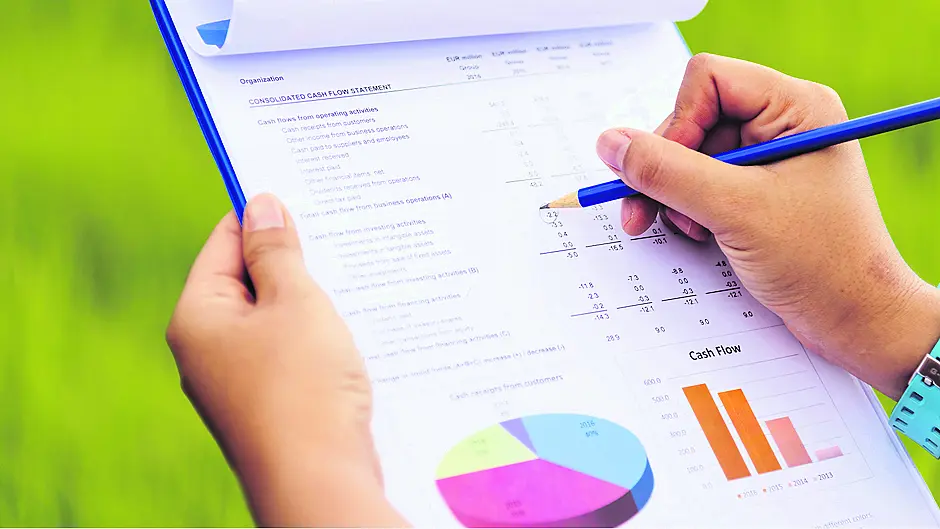IT is very important to review your annual accounts carefully each year, to get a clear picture of the current financial health of your farming business. Many people tend to focus on the bottom line, the tax liability, but they should also spend time on analysing the income and expenditure figures, the performance of their business and planning for the future of the business.
It is important to spend time compiling the information for your accounts for your accountant. The quality of the financial statements produced and advice that your accountant can provide can only be as good as the information supplied by you. It is also vital that an entity’s accounts are prepared on a timely manner. So for example if you are reviewing your farm accounts for the year ended 31st March 2020 in October 2021 the data is very historic and does not give you an accurate picture of your business’ current situation.
It is important to spend time comparing financial figures for a few years together paying attention to figures such as stock values, amounts owed to creditors, loan balances, bank balances and the net worth of the business. If the net worth of the business is decreasing this can be an indicator of financial difficulty which needs to be examined immediately. The balance sheet reflects the net worth of the business at the end of the financial year.
It can also be useful to compare figures from similar farming businesses. This is where being a member of a discussion group can be beneficial, it can help to identify where certain costs are higher when compared to similar businesses for example insurance cost, feed costs. This gives the business an opportunity to explore these costs. There may be a valid reason for the differences in costs as each farm business is very different.
The profit and loss account (also known as income and expenditure account) shows your income less your costs to arrive at a net profit. This net profit figure is adjusted for non-allowable items such as depreciation, private use of phone, electricity etc. and to claim allowable reliefs such as stock relief, to arrive at the taxable profit for the business.
It can be useful to prepare interim accounts for your business especially if you are planning a change to your business or think there will be a significant rise in income which may lead to a higher tax exposure, interim accounts give time for planning.
Cash flow projections can also be a very useful tool if you plan to make a significant business investment e.g., purchase land or make significant changes to your business, restructuring loans etc.
The cash flow statement measures the flow of monies in and out of a business over a given year.
I would hope that people could walk away from their meeting with their accountant after reviewing their entity’s accounts with positivity and encouragement as they see their business growing and improving year on year. This meeting can also help to identify any existing or potential issues that may affect the viability of the business and help to address and plan for these issues.
• Sinead Deane is an accountant with FDC accountants in Bandon.










